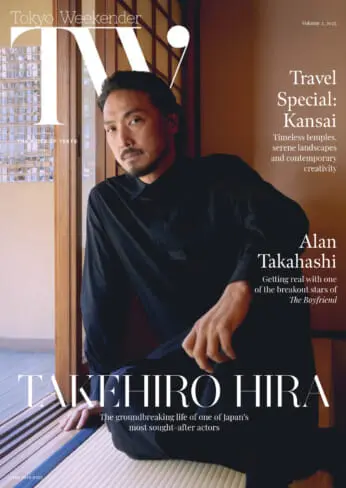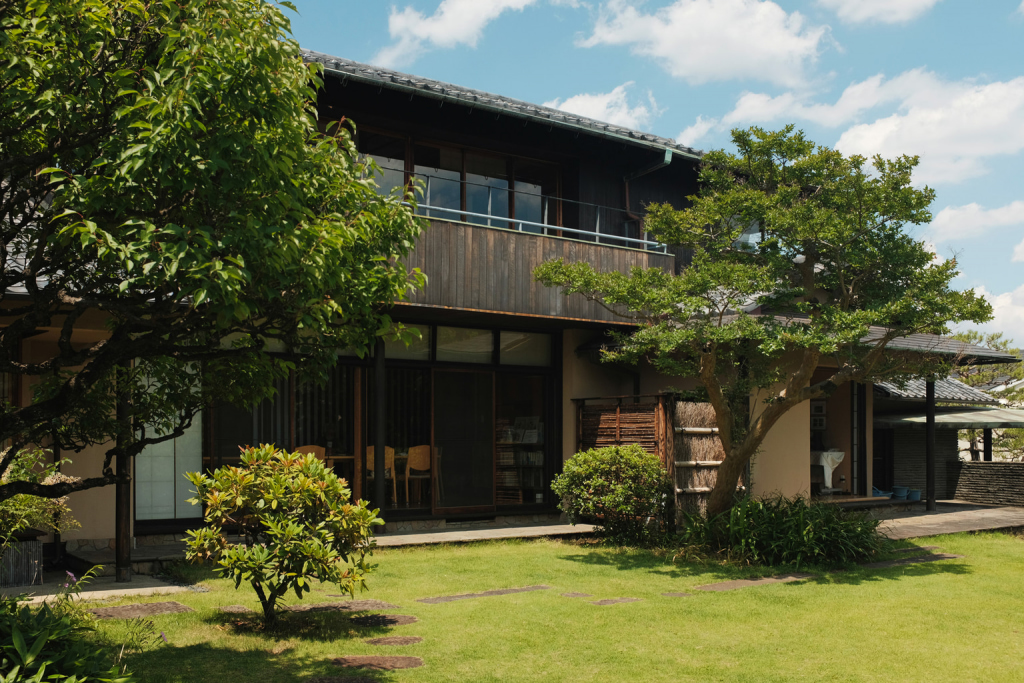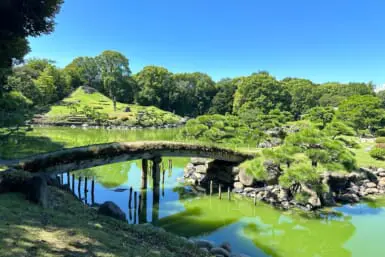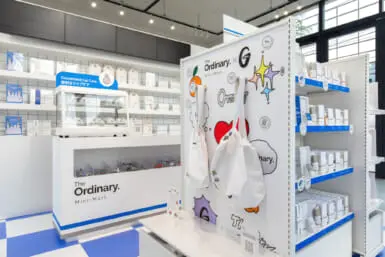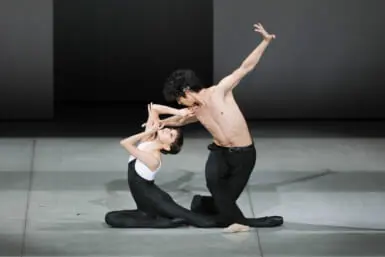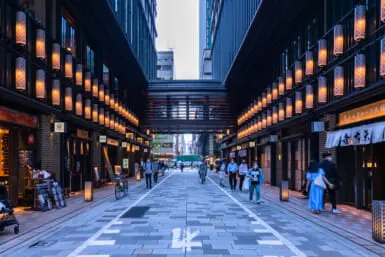Part of a quartet of fashionable stops on the Chuo Line, Ogikubo and Nishi-Ogikubo bring their own identities to a part of Tokyo with a rich history, off-the-beaten-track beauty and a laidback old-town atmosphere.
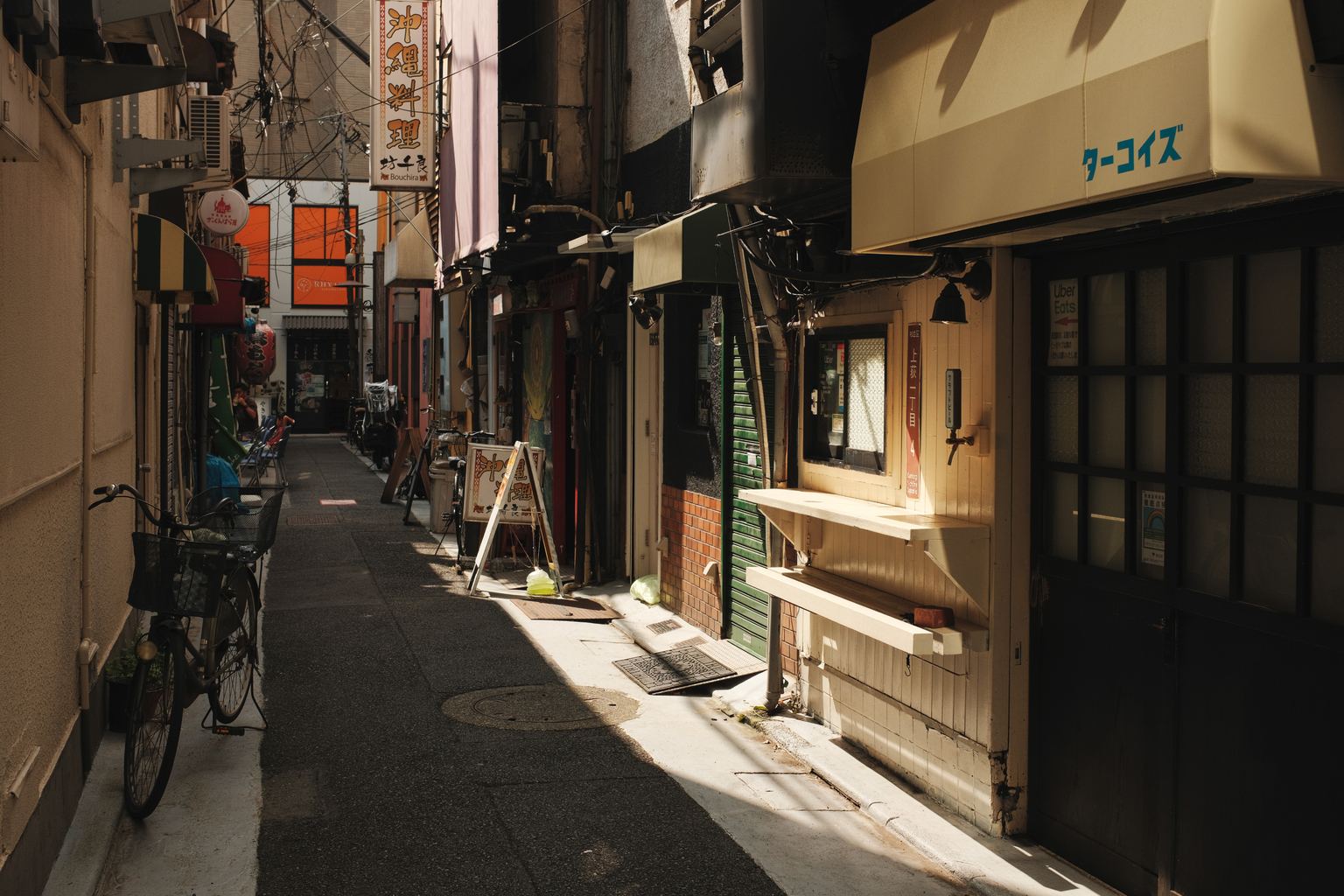
The Taste of Tokyo
Ask any ramen aficionado for the best noodle spots in Tokyo, and Ogikubo will often come up, chiefly because it’s the birthplace of “Tokyo Style” ramen (a soy sauce-based blend of chicken and fish stock). Harukiya set the standard back in 1949 and is still going strong today. A bowl of chuka soba in the restaurant’s no-nonsense setting will set you up nicely for exploring the rest of the Ogikubo Ginza area, where you’ll find cozy bars and an authentic post-war vibe.
There are plenty of other mouth-watering eateries across Ogikubo and neighboring Nishi-Ogikubo (referred to by locals as “Nishi-Ogi”). The latter is at the forefront of Tokyo’s blossoming vegan scene with places such as Go! Muffins Go!, Organic Cafe Yukisuki no Kuni, or — for a light evening meal with vegan tipples plus a dose of 80s heavy metal — Darts & Vegan Bar Meteora. However, it’s hard to beat the ambience of British country pub The Hole In The Wall and its homemade pies and pasties that pair perfectly with a pint of Thatchers Gold cider – an on-tap rarity in the capital.
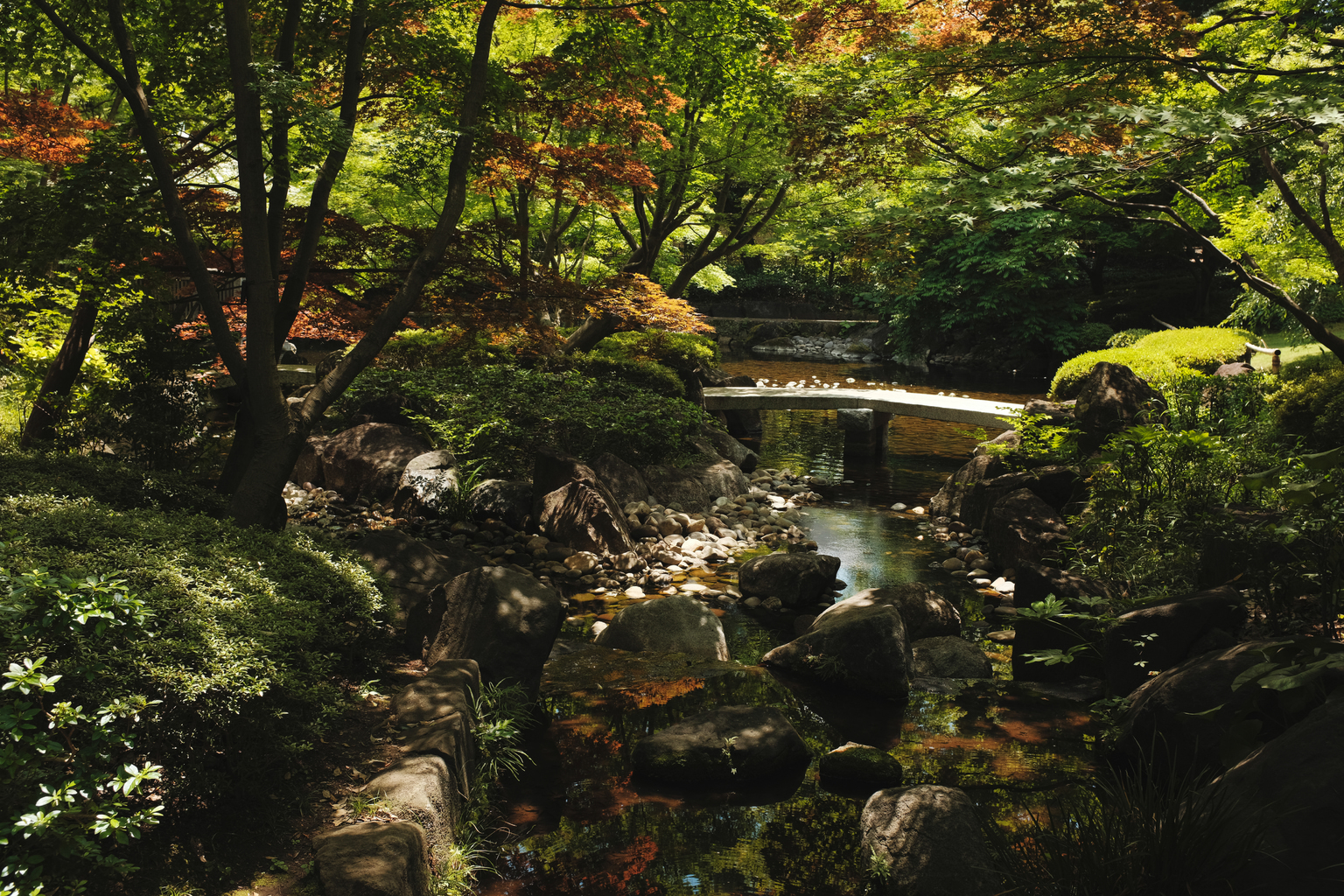
Otaguro Park
Three Gardens
Ogikubo is also well-known for a triumvirate of serene outdoor locations, collectively known as the Three Gardens. Tekigaiso is the former home and grounds of Fumimaro Konoe, Japan’s pre-war prime minister, while Kadokawa Garden is the renovated house and garden of local poet and bookstore founder Genyoshi Kadokawa, and finally, Otaguro Park was built on the site that was at one time the residence of Japanese classical music critic Motoo Otaguro. Evening illuminations during the winter season add even more beauty to the park.
If you’re looking to trace the roots of the neighborhood even further back, then head to Komyoin Temple. The original name of the temple upon its founding was Ogi Temple, derived from the abundance of Amur silver grass (“Ogi” in Japanese) growing nearby and eventually leading to the area’s name. Also worth stopping by is Ogikubo Hakusan Shrine, particularly if you’re fearful of the dentist, as the shrine’s supposed reputation for curing toothaches might save you a trip. Then there’s Igusa Hachimangu Shrine, which is a bit of a trek from Nishi-Ogikubo Station, but does have one of the largest shrine grounds in all of Tokyo. It makes use of the space by hosting yabusame (horseback archery) events there every five years. The sprawling Zenpukuji Park is also nearby, featuring two ponds for some boating and birdwatching.
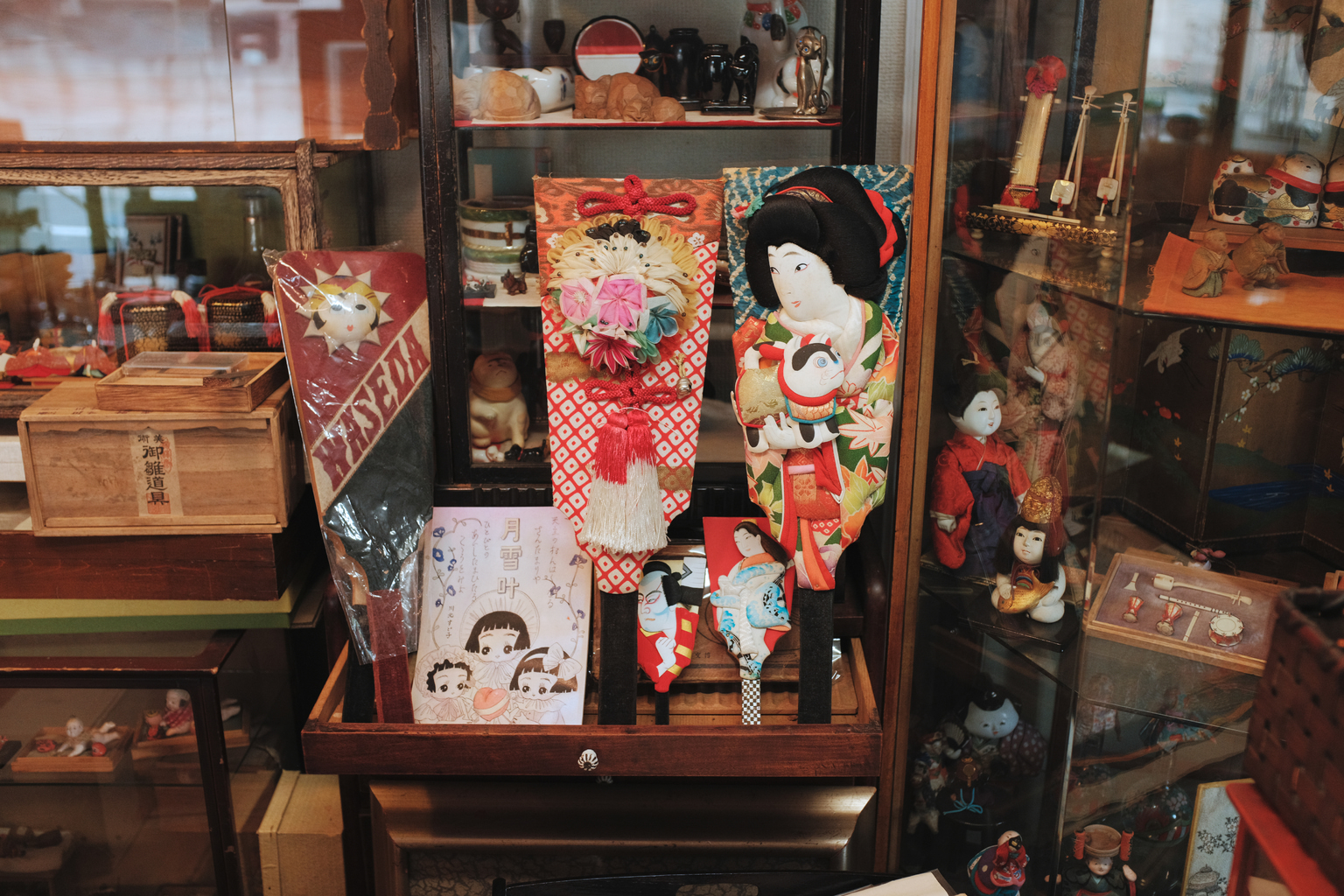
Tori Tori
Antiques Roadshow
Nishi-Ogikubo has Tokyo’s largest antique district as its biggest draw, making it popular with period-piece hunters scouring for one-of-a-kind souvenirs. Two of the most-loved stores are conveniently side by side, Kidoairaku (also known as Antiques Watanabe) and Tori Tori. They are both compact, chock-a-block with knickknacks from various historical eras and have friendly, knowledgeable owners to talk you through the goods. Tori Tori, in particular, has a fine collection of hinakazari dolls and miniatures to admire.
There are many historical houses to keep an eye out for, one of the best examples undoubtedly being the café, apparel and arts and crafts store Re:gendo. In addition to being located in a beautifully renovated Showa-era wooden house, the store’s theme is inspired by an unusual source, Shimane Prefecture — one of the least populated prefectures in Japan.
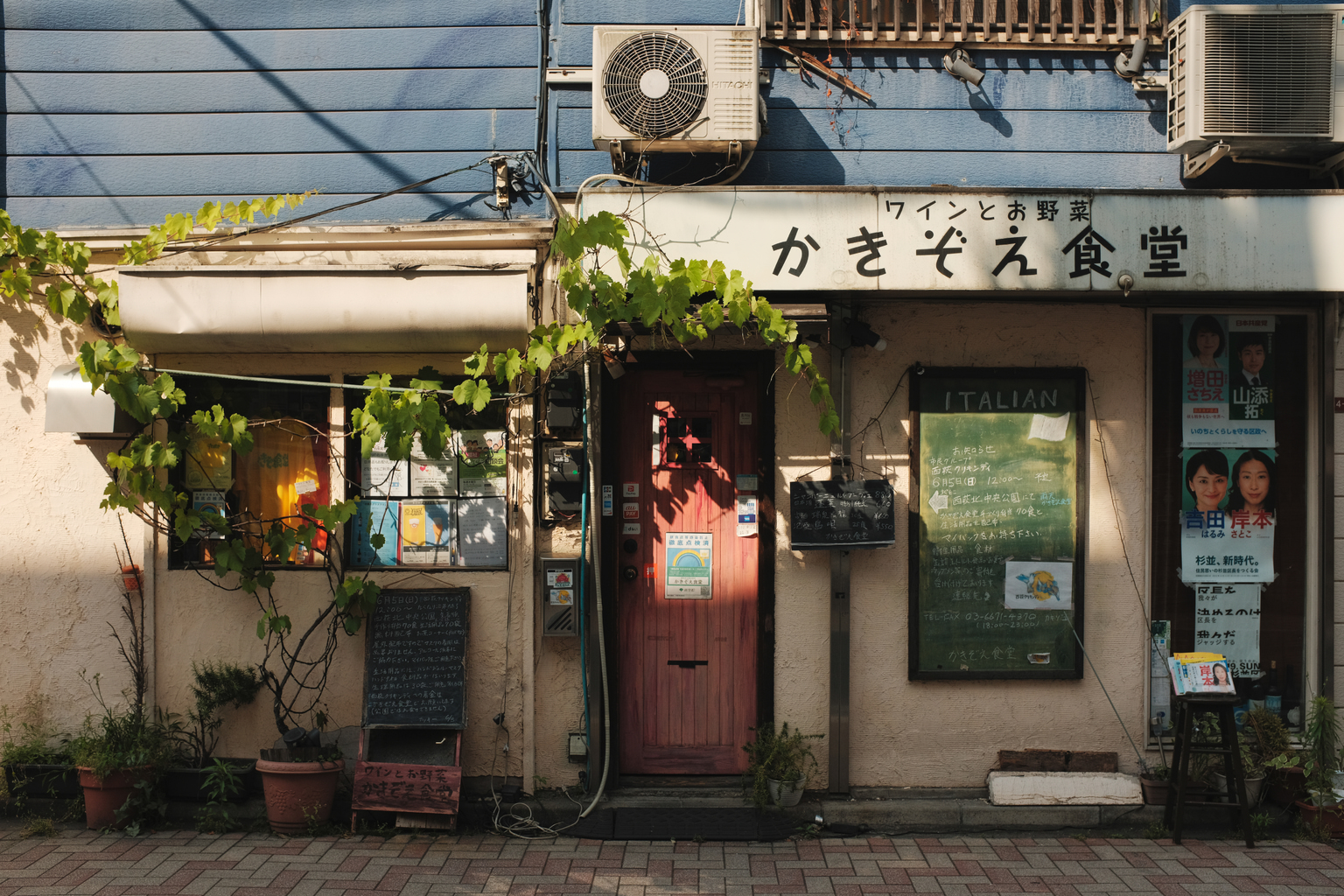
Animated Classics
Ogikubo is also great for a dose of classical music. Suginami Public Hall serves as the home of the Tokyo Philharmonic Orchestra, whilst Mignon is an increasingly rare classical music café. Based in Tokyo since 1971, it underwent a facelift in 2001 following the previous owner’s retirement at the ripe old age of 91. Being a listening café, you won’t hear any chitchat, just the soothing sounds of classical music selected by patrons from the inherited collection of around 5,000 vinyl records. Another impressive selection can be found at Gekkosha, a friendly neighborhood record store that has been in the same spot for almost 70 years.
Unsurprisingly, given there are around 130 animation companies based in Suginami Ward, the particularly wordy Tokyo Polytechnic University Suginami Animation Museum has made Ogikubo its home too. Three floors cover the history and major players within the industry, with plenty of interactive activities to keep anime fans of all ages engaged and entertained.
Photos by Stephan Jarvis
